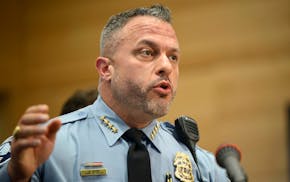Robbinsdale schools officials have big plans for the $4.4 million in federal stimulus funds coming their way: They've earmarked that money to raise student math and reading test scores and improve students' attitudes toward learning.
While many other Twin Cities school districts remain cautious and undecided about how to use their stimulus funds, Robbinsdale officials got the go-ahead from the district school board Monday to hire up to 18 "coaches" to work with teachers.
Nine of those coaches will be assigned to each of the district's elementary schools to help teachers improve their math and reading instruction. Those positions will be paid with stimulus funds targeted especially toward helping low-income students.
Another nine new employees will be hired as "intervention coaches," and assigned to high schools, middle schools and elementary schools.
Their job will be to "work with some administrators and teachers ... to influence student behavior in positive ways that lead to their success in schools," said Gayle Walkowiak, Robbinsdale assistant superintendent for teaching and learning.
Those new coaches will be funded via another pot of stimulus money dedicated to helping schools pay their special education costs. The idea, Walkowiak said, is to "reduce the incidence of students being referred to special education."
Special education services are reserved for those students who have difficulty performing in a regular classroom setting, often the result of physical or mental disabilities. Funding such services has become a headache for schools because they are mandatory and costly. Also, state and federal aid meant to help schools pay special education costs are generally nowhere near enough to meet the needs.
Overall, the district hopes such efforts will improve student test scores and help schools meet the academic goals set by the federal No Child Left Behind legislation.
Walkowiak said that $2.9 million of the district's stimulus funding windfall comes out of the special education pot, and the remaining $1.5 million is for the low-income kids.
One drawback to the stimulus funds, which were authorized by President Obama's American Recovery and Reinvestment Act as a way to jump-start the nation's slumping economy, is they're discontinued after two years. The funding cutoff shouldn't pose a problem for Robbinsdale's plans, Walkowiak said, because the coaches' jobs training teachers and administrators will have been finished by the time the funding stops.
Walkowiak said the district will continue to fish for more stimulus funding, and is looking at federal grants awarded to districts that make big changes in how they operate their schools and classrooms. Also, outgoing Robbinsdale superintendent Stan Mack wants to corral $20 million to $24 million in federal aid to build a new elementary school in the eastern part of the district.
Though many school districts continue to be wary of the limitations placed on stimulus funds, and the complex, evolving regulations governing their use, a few have resolved to go ahead and spend their new money.
St. Francis schools, for instance, announced it will use $631,000 of its stimulus funds to hire back five teachers who had been laid off because of budget constraints.
Norman Draper • 612-673-4547

The Borealis train makes its maiden voyage Tuesday from Minnesota to Chicago

Minnesota's child protection system needs fixes. Legislators are starting with these changes.

Bring what? Did Edwards give state tourism new catchphrase?

No. 1 in baseball Metro Top 10 is there by a wide margin

